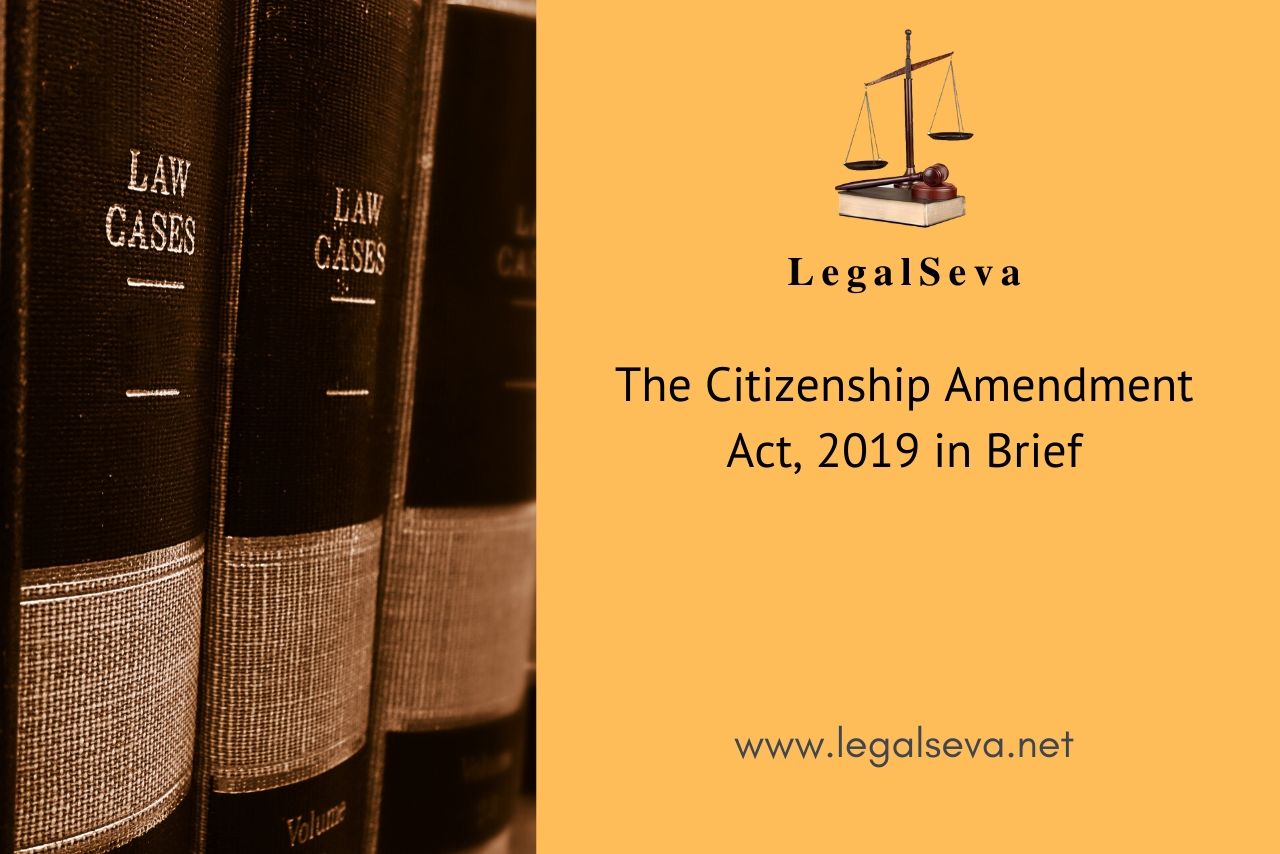Last Updated on July 7, 2024 by Satish Mishra
Citizenship Amendment Act, 2019 has amended the Citizenship Act 1955 to give accelerated route to Indian Citizenship for persecuted religious minorities from Afghanistan, Bangladesh and Pakistan who arrived in India by 2014. The Act does not include muslims.
The previous 64 year old Citizenship Act prohibited illegal migrants from becoming Indian Citizens, thus becoming illegal migrants beyond permitted time.
Citizenship Amendment Act
Citizenship Amendment Act aims to grant citizenship and not to revoke status of any individual.
Also Read-Indian Citizenship Online
In India, the issue of citizenship has been disclosed at two places which is Constitution of India and Citizenship Act. in the constitution of India the issue of citizenship is discussed in the article 5 to 11 and deals with only answer which tell us who are eligible to be Indian citizens after 26th January 1950.
All the further details related to any kind of queries assault by the citizenship act 1955 and recently this act is amended again. Earlier this was amended in 1986 for the first time which said, the citizenship will not be provided only on the case of birth here in India but the father of the child shall also be an Indian citizen. In the amendment of 1992 the above rule was discussed and it was stated that any one of the parent could be an Indian citizen. In the year 2003, the definition of illegal migrant was given which stopped the acquisition of citizenship on the basis of registration and naturalization. Then came the amendment act of 2005 which made major changes in the OCI ( Overseas Citizen of India ) .
Citizenship Amendment Act Controversy
Now, the latest amendment of 2019 came which is one of the most controversial topic of the Year. The citizenship amendment act, 2019 came with the bill which provides Indian nationality to 6 communities of six religions which are Hindus, Christians, Sikh, Parsi, Jain and Buddhist you are fleeing persecution from Pakistan, Afghanistan and Bangladesh; To make illegal migrants of selected category to be eligible for the citizenship. In all these communities it is very clear that the ‘Muslim’ community is missing.
As it is believed that the above-mentioned communities are under the real need of shelter as they are minorities in their respective countries and the reason given by the government for not include in Muslim community was that it is already in majority and no majority in their own country seek help.
Also Read-CAA: India’s new citizenship law explained
Government for the mentioned that it will be another push from the Modi government to the spirit of ‘SarvDhanSambhav’ that is why they wanted to go ahead with the citizenship amendment Bill.
Whereas, at the other hand the question arose that, is it against the preamble of constitution which provides the basic structure to make a law or pass a bill. As we know preamble talks about maintaining the secularism in the country i.e. treating no religion about any other and not to differentiate on the basis of religion; and this was seen as the major issue in the given amendment act.
Citizenship Amendment Act on Equality
The bill also directly or indirectly believed to in infringe the right to Equality. the citizenship act 1955 says Bose seeking citizenship must have lived in India for 12 months before their application and 11 month of the previous 14 years. The amendment seeks to relax the second requirement from 11 to 6 years for non Muslim applicants from the three neighbouring countries.
Here, the next question is ‘do Indian Muslims need to worry about CAA?” the answer to this is “That CAA is only for the migrants from other country and not for infringing rights of an Indian citizen and it would be sufficient for a person to provide the details of their birth such as date of birth, month, year and place of birth as citizenship can be provided by any of the above mentioned documents.
Also Read-How to Get Free Legal Advice Online in India
Part 3 is perhaps one of the most essential part of the constitution confronting fundamental rights on persons and citizens. Based on the above view that we see a on a stand alone basis wallets the guarantee of equality before the law and equal protection of the law under article 14 and the right to a life with dignity under article 21 of the Constitution of India and must be found to be unconstitutional.
The CAA appears to luck such reasonable classification and appears to discriminate between equally place persons, but at the other hand it came out with some of the best solutions to decrease terrorist and illegal migrants to enter in our country.
This post is written by Natasha Joshi (Intern). For more , call 99888-17966.
